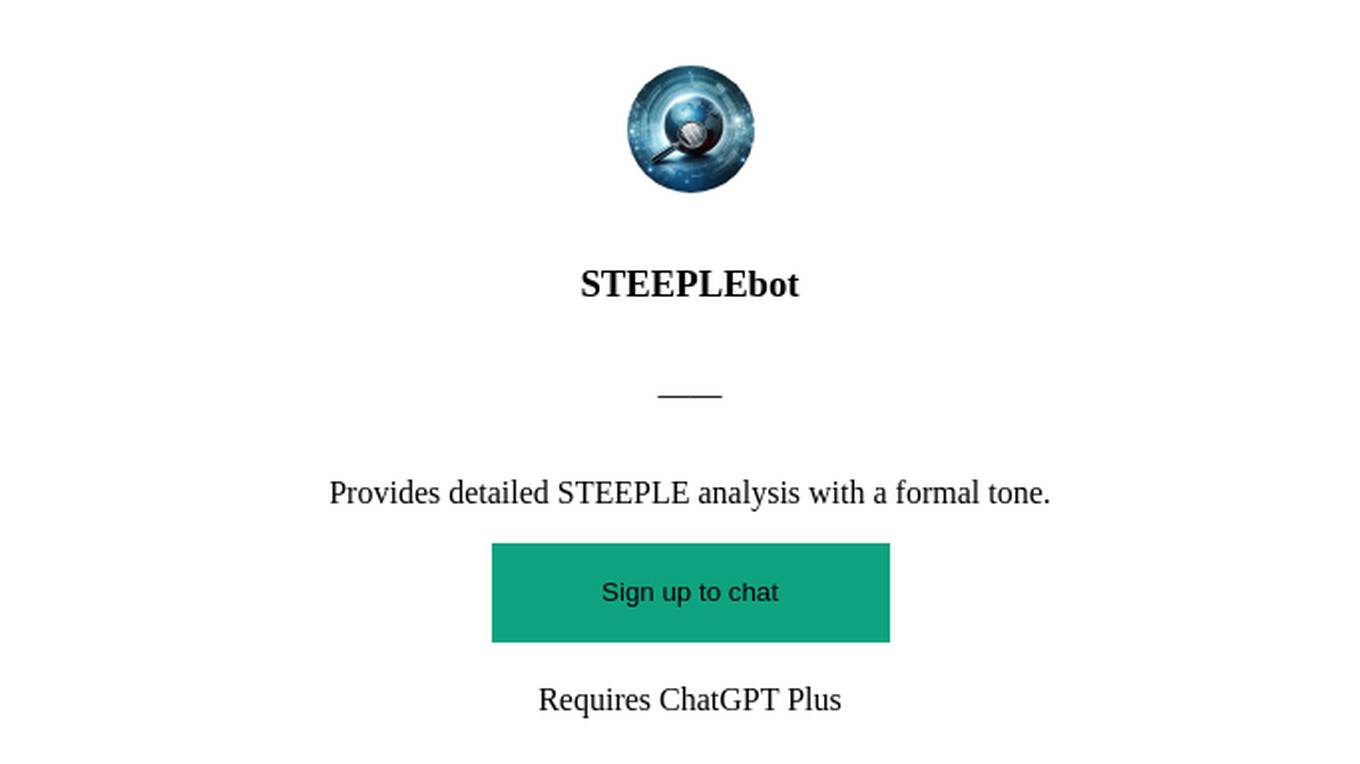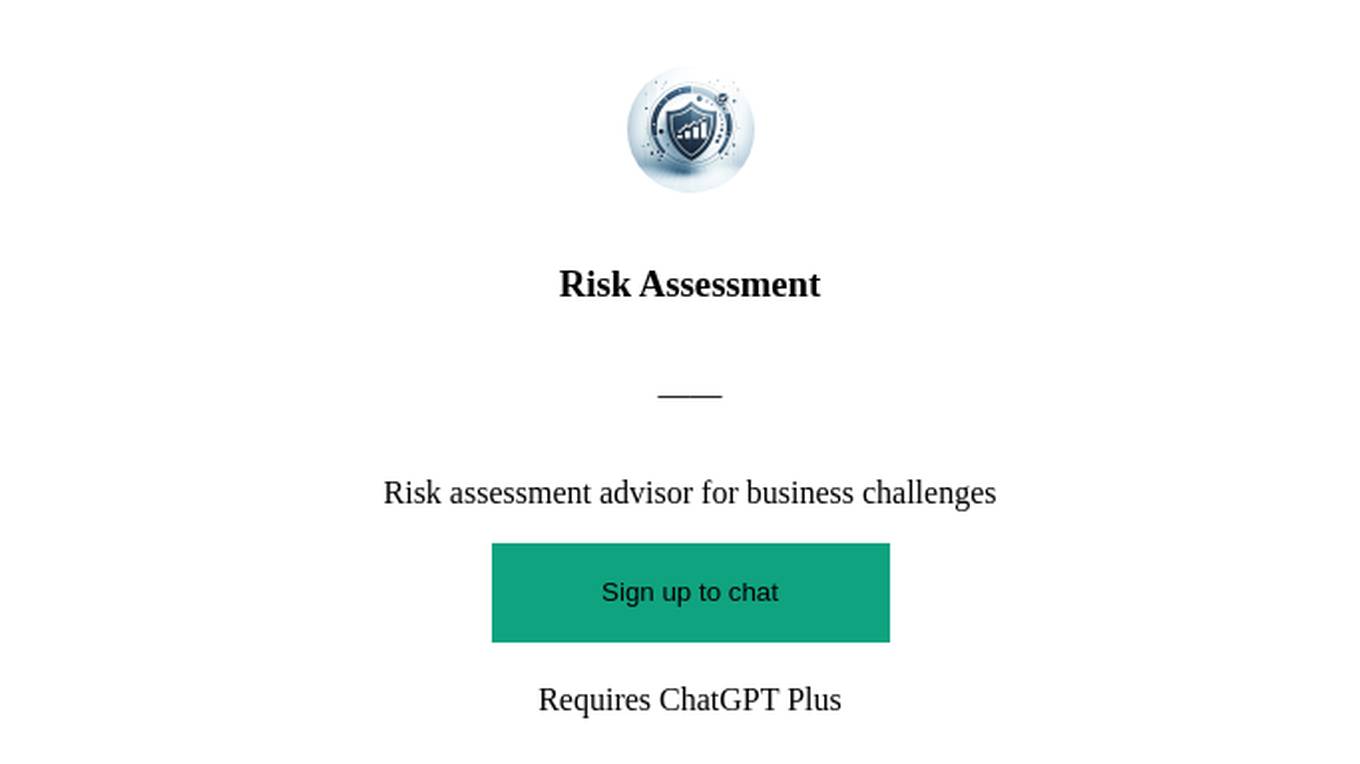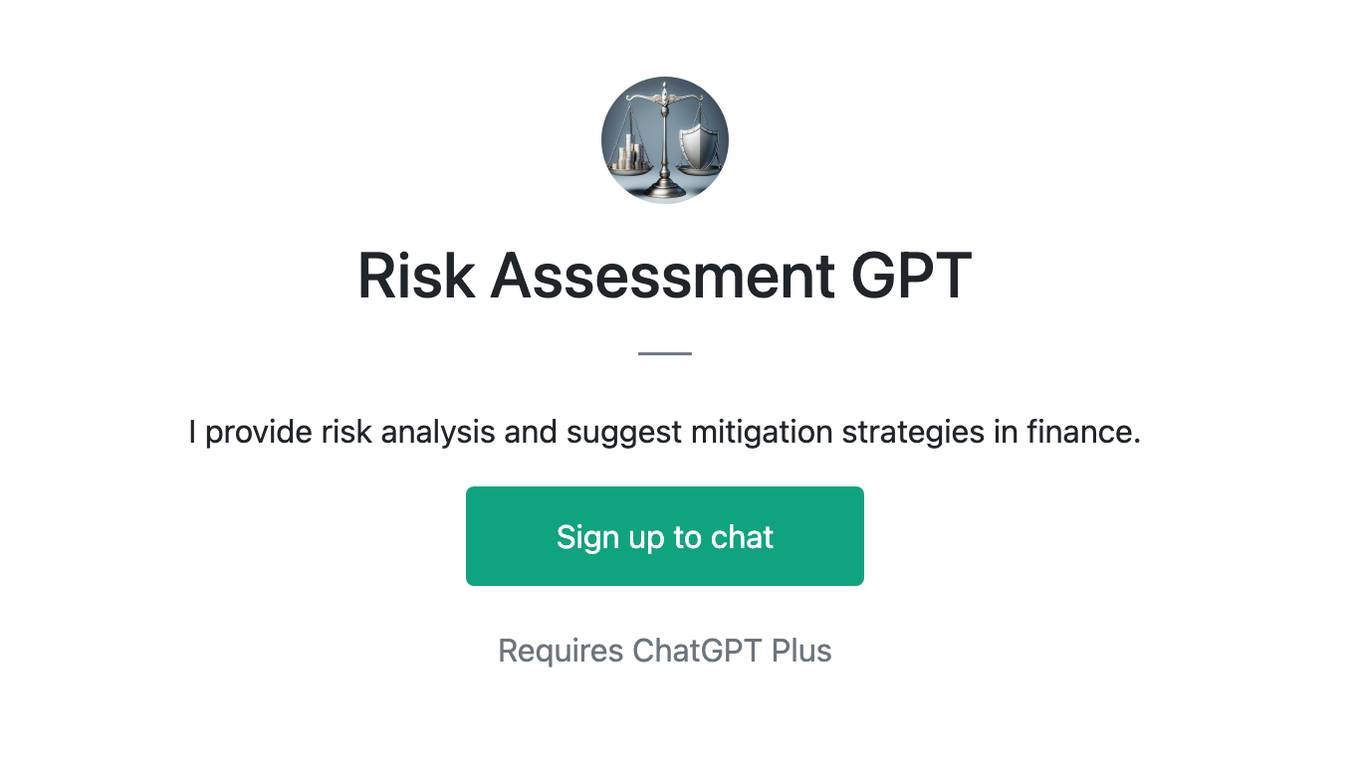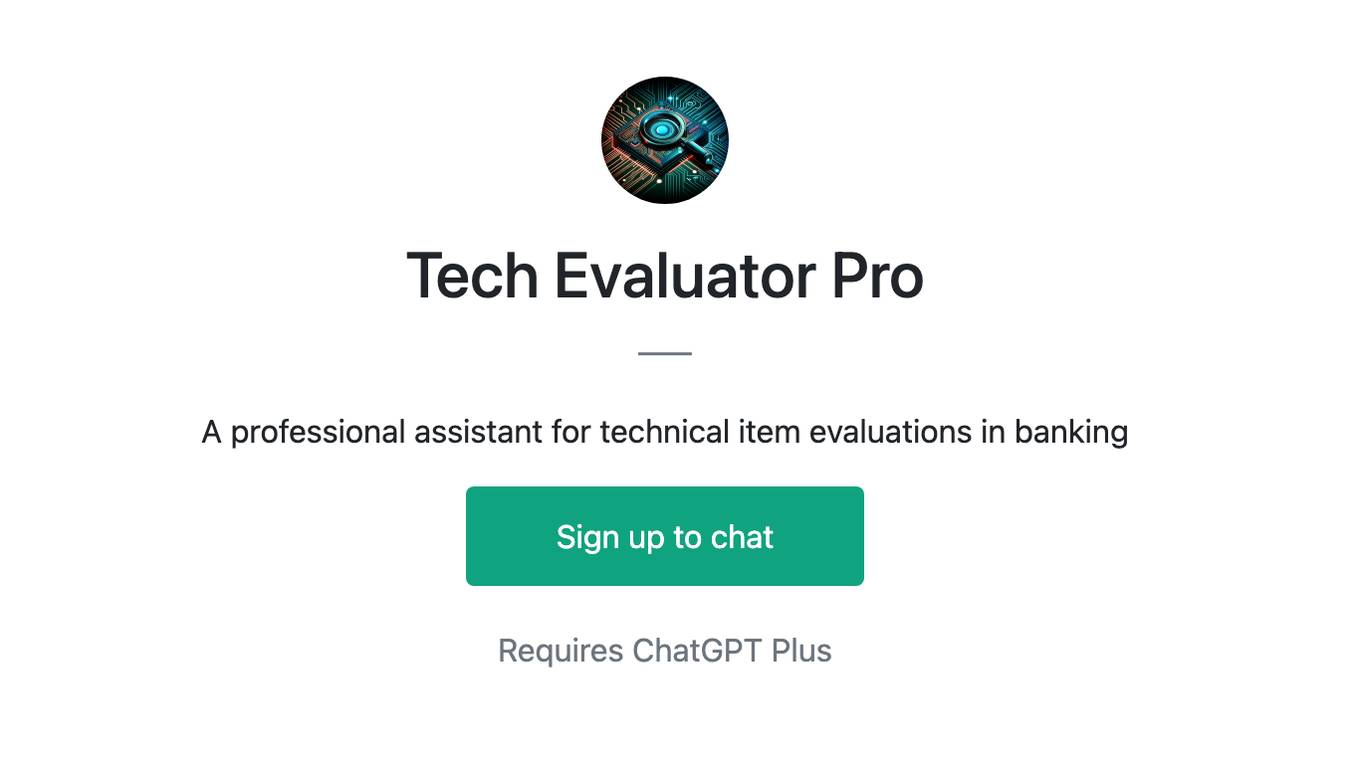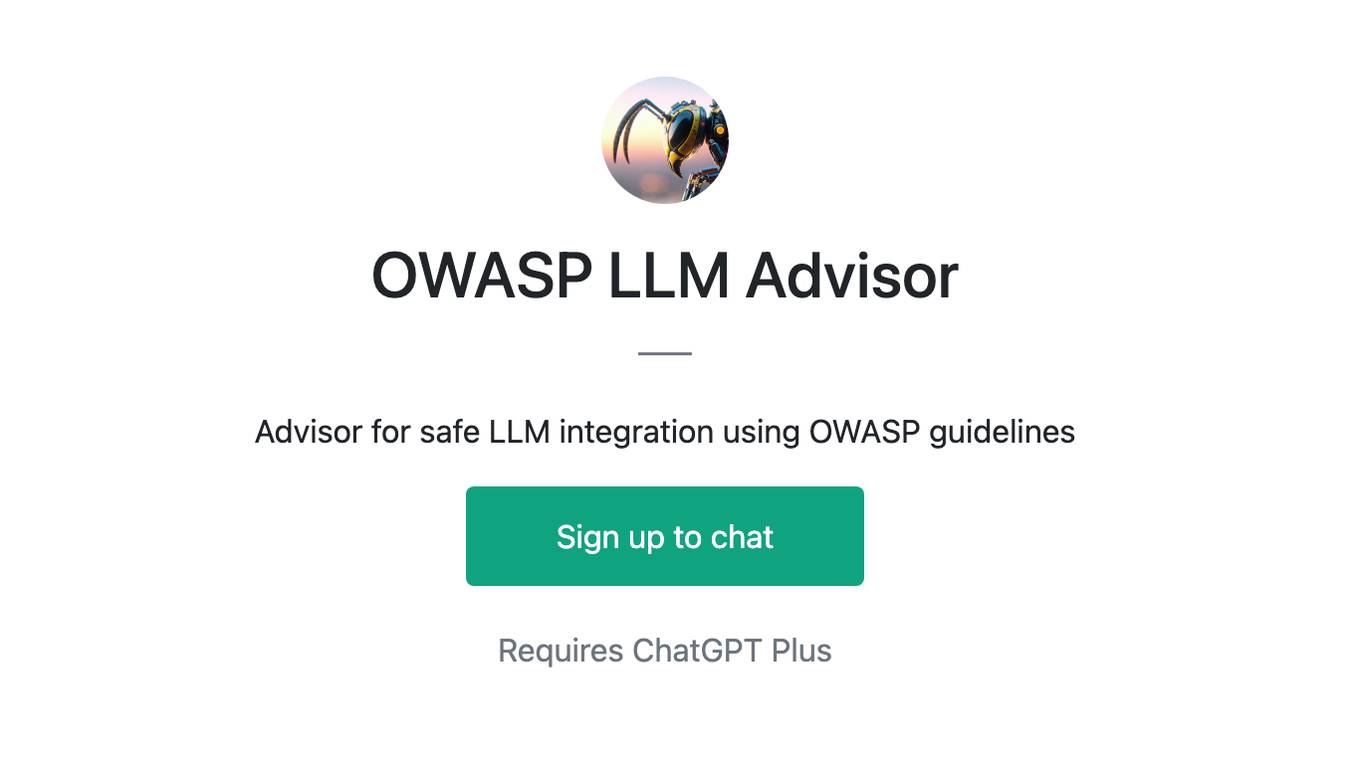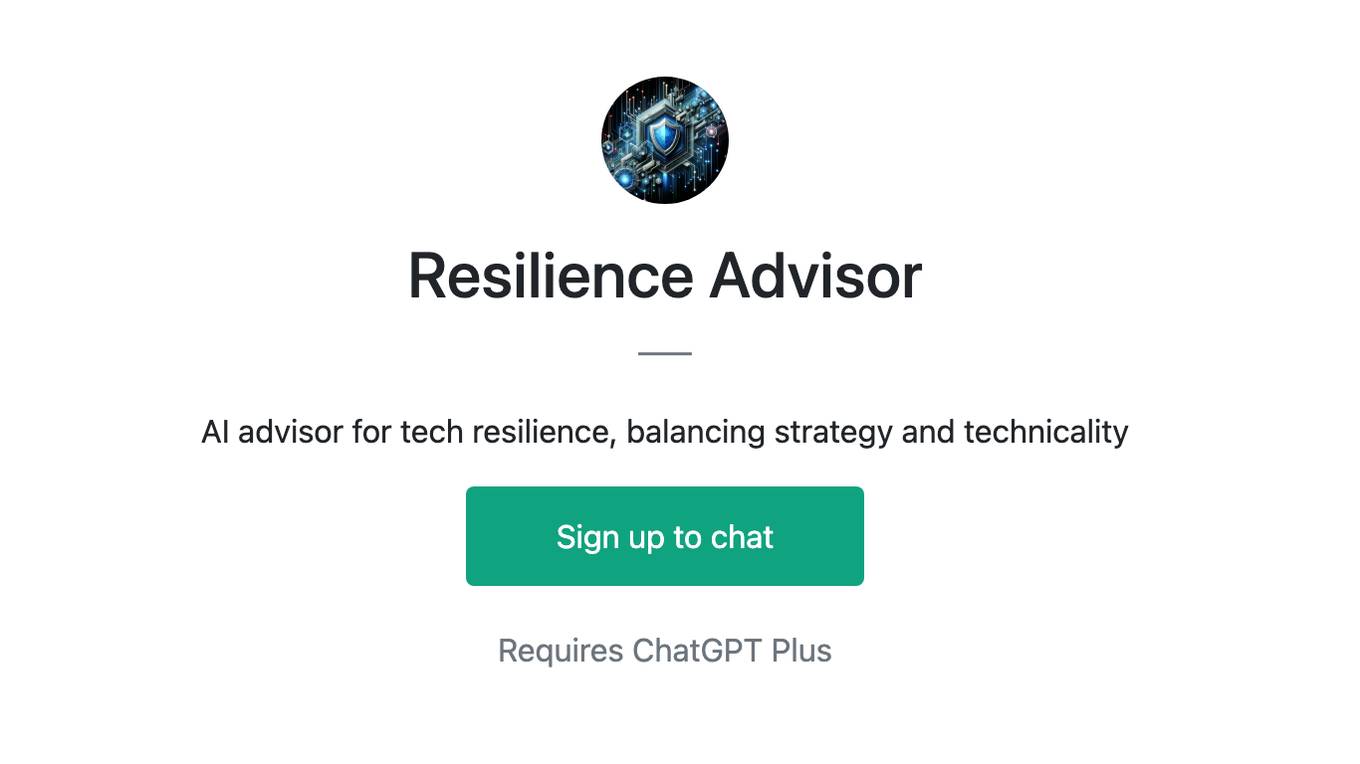Best AI tools for< Evaluate Risk >
20 - AI tool Sites

Convr
Convr is an AI-driven underwriting analysis platform that helps commercial P&C insurance organizations transform their underwriting operations. It provides a modularized AI underwriting and intelligent document automation workbench that enriches and expedites the commercial insurance new business and renewal submission flow with underwriting insights, business classification, and risk scoring. Convr's mission is to solve the last big problem of commercial insurance while improving profitability and increasing efficiency.

Convr
Convr is a modularized AI underwriting and intelligent document automation workbench that enriches and expedites the commercial insurance new business and renewal submission flow with underwriting insights, business classification and risk scoring. As a trusted technology partner and advisor with deep industry expertise, we help insurance organizations transform their underwriting operations through our AI-driven digital underwriting analysis platform.
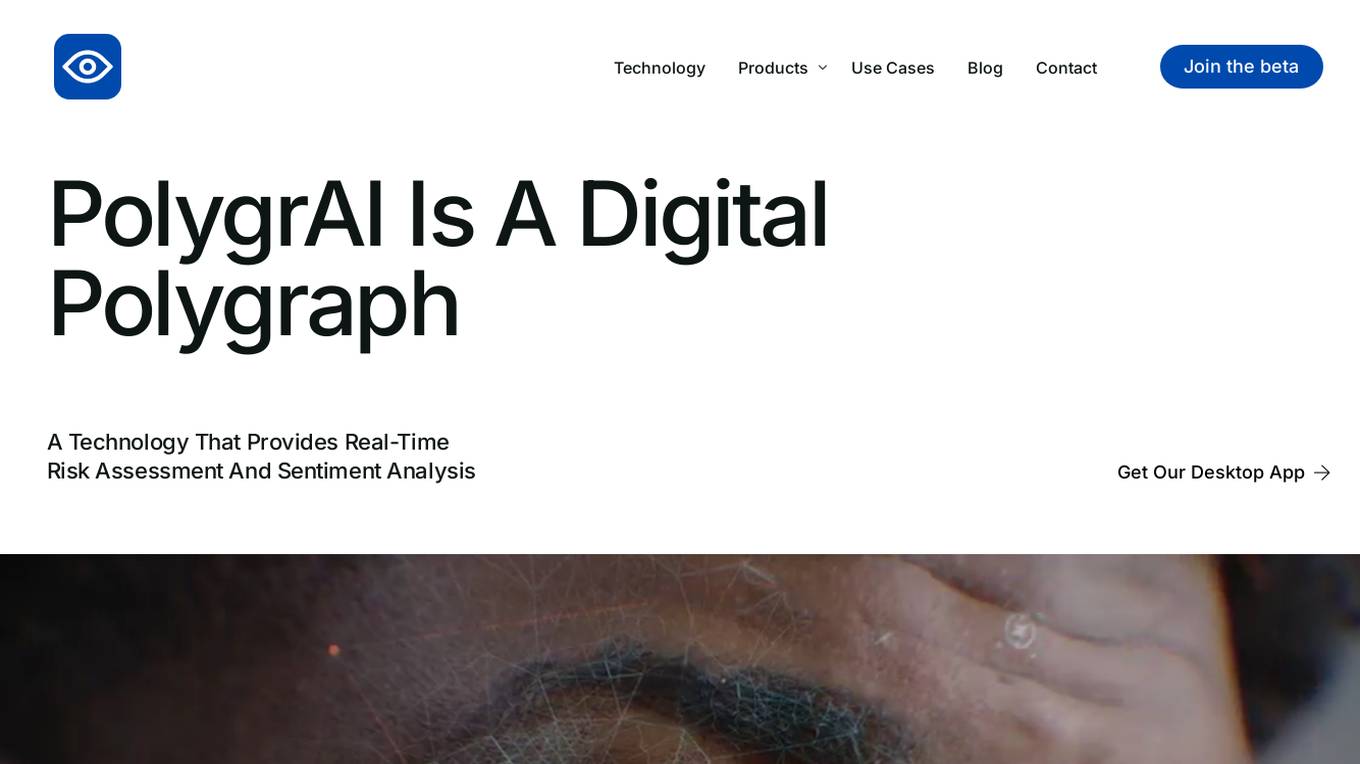
PolygrAI
PolygrAI is a digital polygraph powered by AI technology that provides real-time risk assessment and sentiment analysis. The platform meticulously analyzes facial micro-expressions, body language, vocal attributes, and linguistic cues to detect behavioral fluctuations and signs of deception. By combining well-established psychology practices with advanced AI and computer vision detection, PolygrAI offers users actionable insights for decision-making processes across various applications.

ZestyAI
ZestyAI is an artificial intelligence tool that helps users make brilliant climate and property risk decisions. The tool uses AI to provide insights on property values and risk exposure to natural disasters. It offers products such as Property Insights, Digital Roof, Roof Age, Location Insights, and Climate Risk Models to evaluate and understand property risks. ZestyAI is trusted by top insurers in North America and aims to bring a ten times return on investment to its customers.

iCAD
iCAD is an AI-powered application designed for cancer detection, specifically focusing on breast cancer. The platform offers a suite of solutions including Detection, Density Assessment, and Risk Evaluation, all backed by science, clinical evidence, and proven patient outcomes. iCAD's AI-powered solutions aim to expose the hiding place of cancer, providing certainty and peace of mind, ultimately improving patient outcomes and saving more lives.

AnalyzeMe
AnalyzeMe is an application that allows users to easily conduct PEST analysis. By entering industry and keywords, it provides detailed market environmental analysis. Users can use AnalyzeMe to reassess their business strategies.
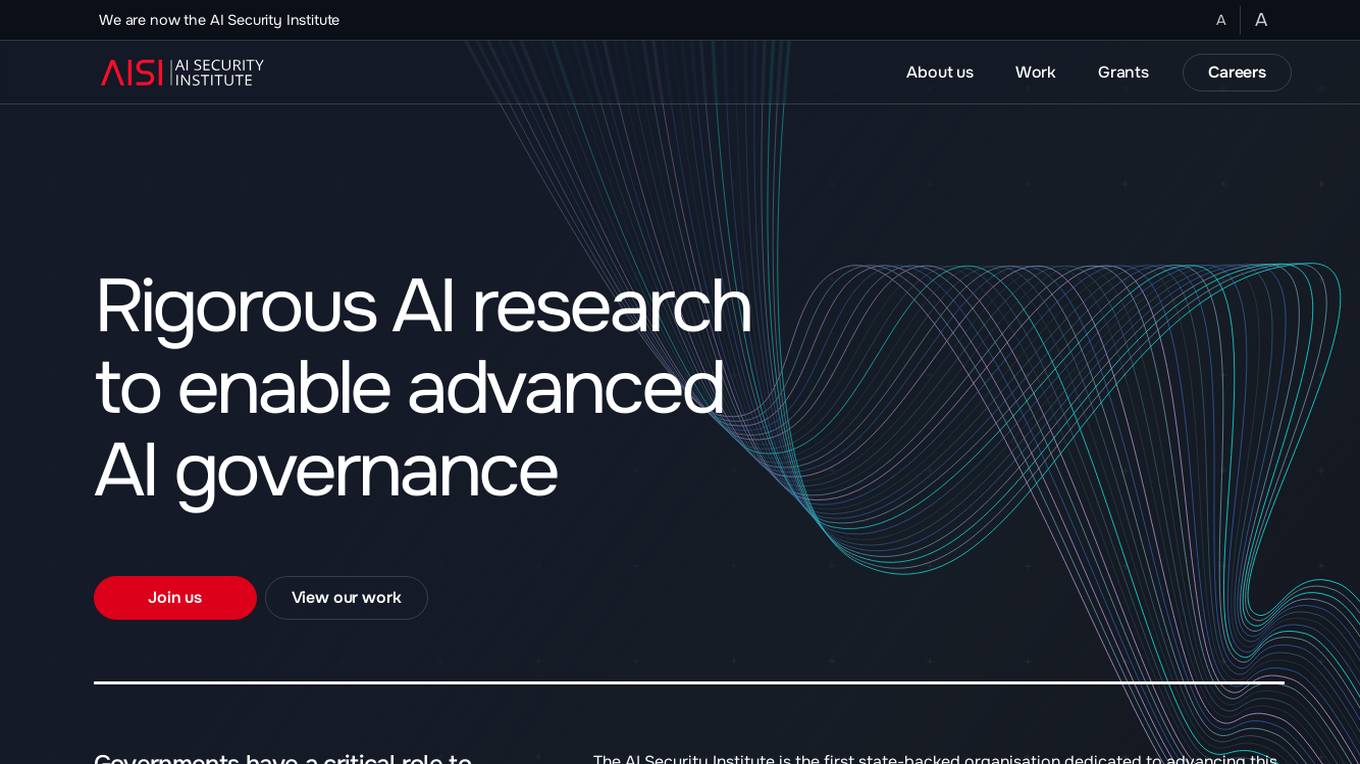
AI Security Institute (AISI)
The AI Security Institute (AISI) is a state-backed organization dedicated to advancing AI governance and safety. They conduct rigorous AI research to understand the impacts of advanced AI, develop risk mitigations, and collaborate with AI developers and governments to shape global policymaking. The institute aims to equip governments with a scientific understanding of the risks posed by advanced AI, monitor AI development, evaluate national security risks, and promote responsible AI development. With a team of top technical staff and partnerships with leading research organizations, AISI is at the forefront of AI governance.
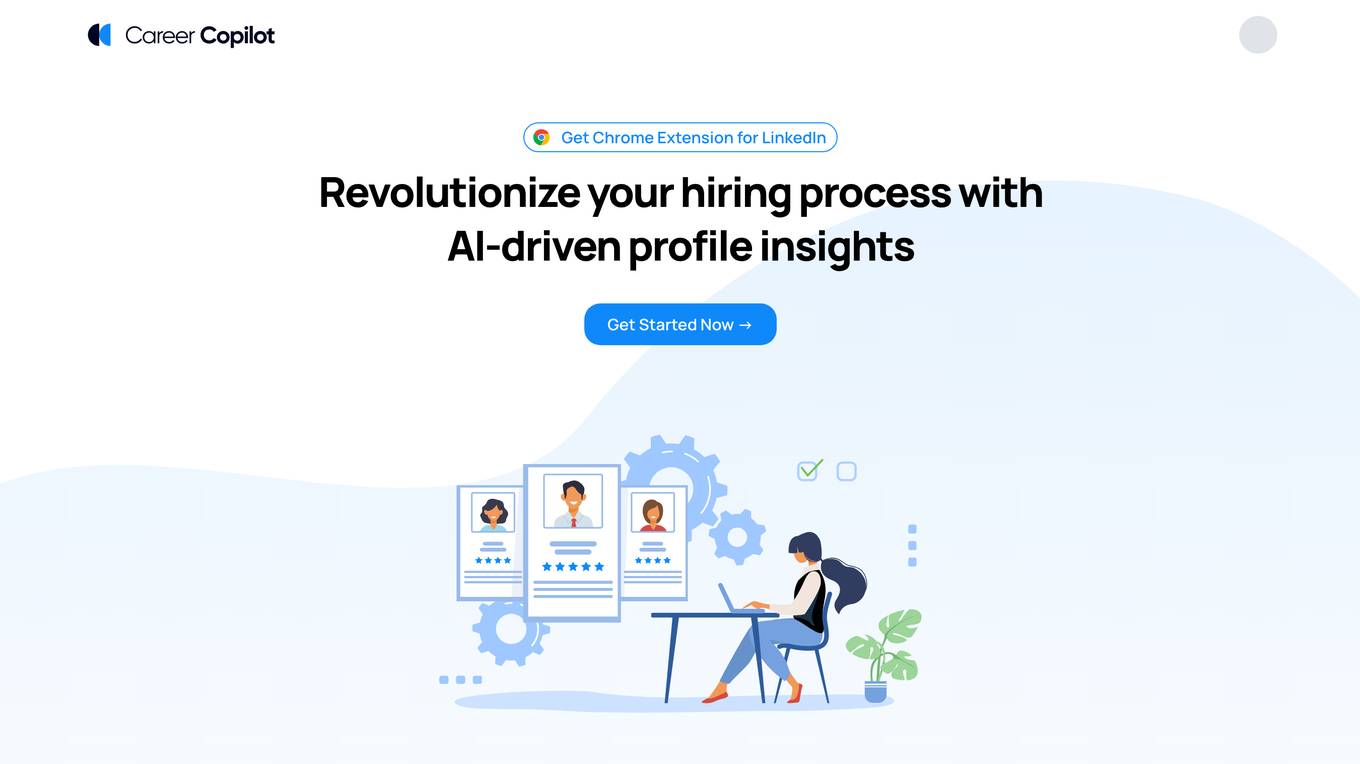
Career Copilot
Career Copilot is an AI-powered hiring tool that helps recruiters and hiring managers find the best candidates for their open positions. The tool uses machine learning to analyze candidate profiles and identify those who are most qualified for the job. Career Copilot also provides a number of features to help recruiters streamline the hiring process, such as candidate screening, interview scheduling, and offer management.
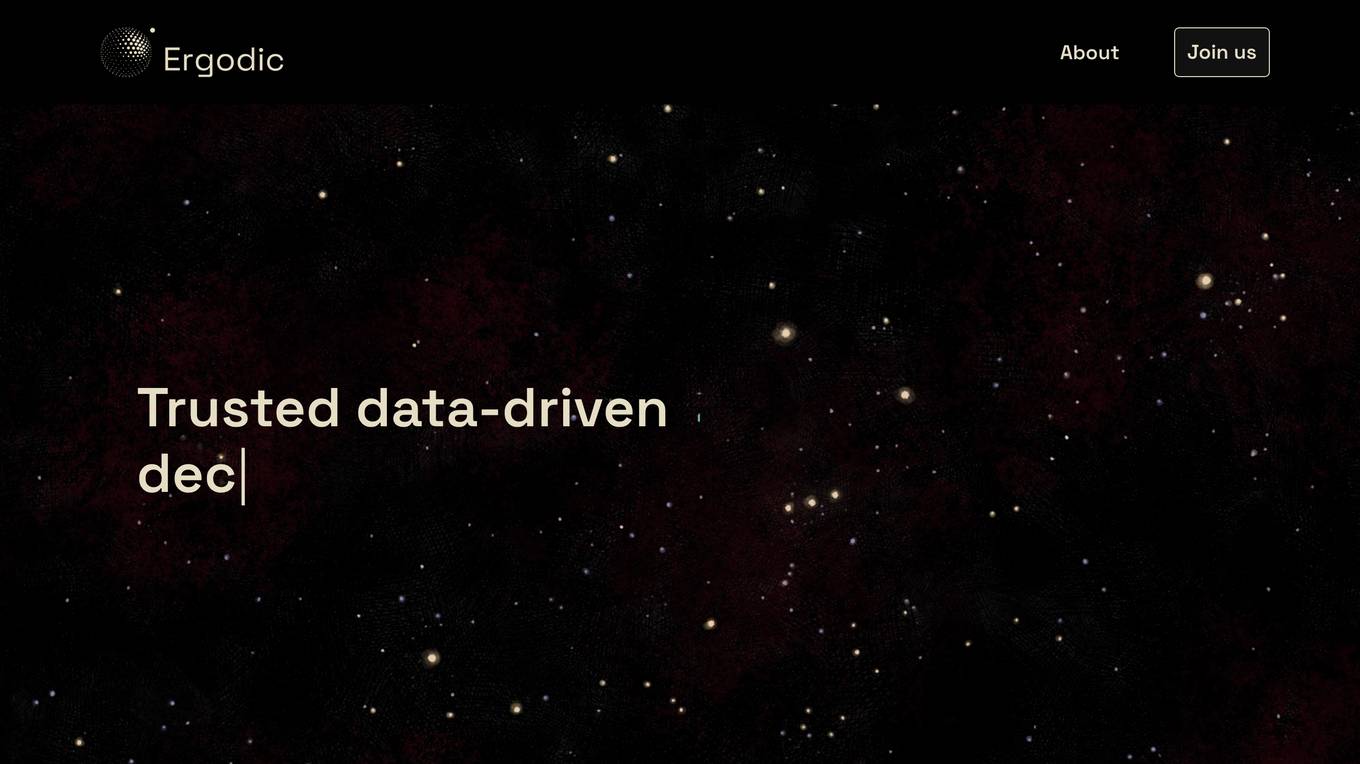
Ergodic - Kepler
Ergodic is an AI tool called Kepler that enables data-driven decisions for businesses. Kepler acts as an AI action engine, bridging the knowledge gap between business context and data to help optimize processes, identify opportunities, and mitigate risks. It goes beyond number crunching to build a digital version of the business, allowing users to create scenarios and evaluate outcomes. Kepler focuses on taking action directly, without the need for complex dashboards, providing insights on what needs to be done, why, and the potential outcomes. Ergodic aims to empower businesses with AI-driven solutions for strategic decision-making.
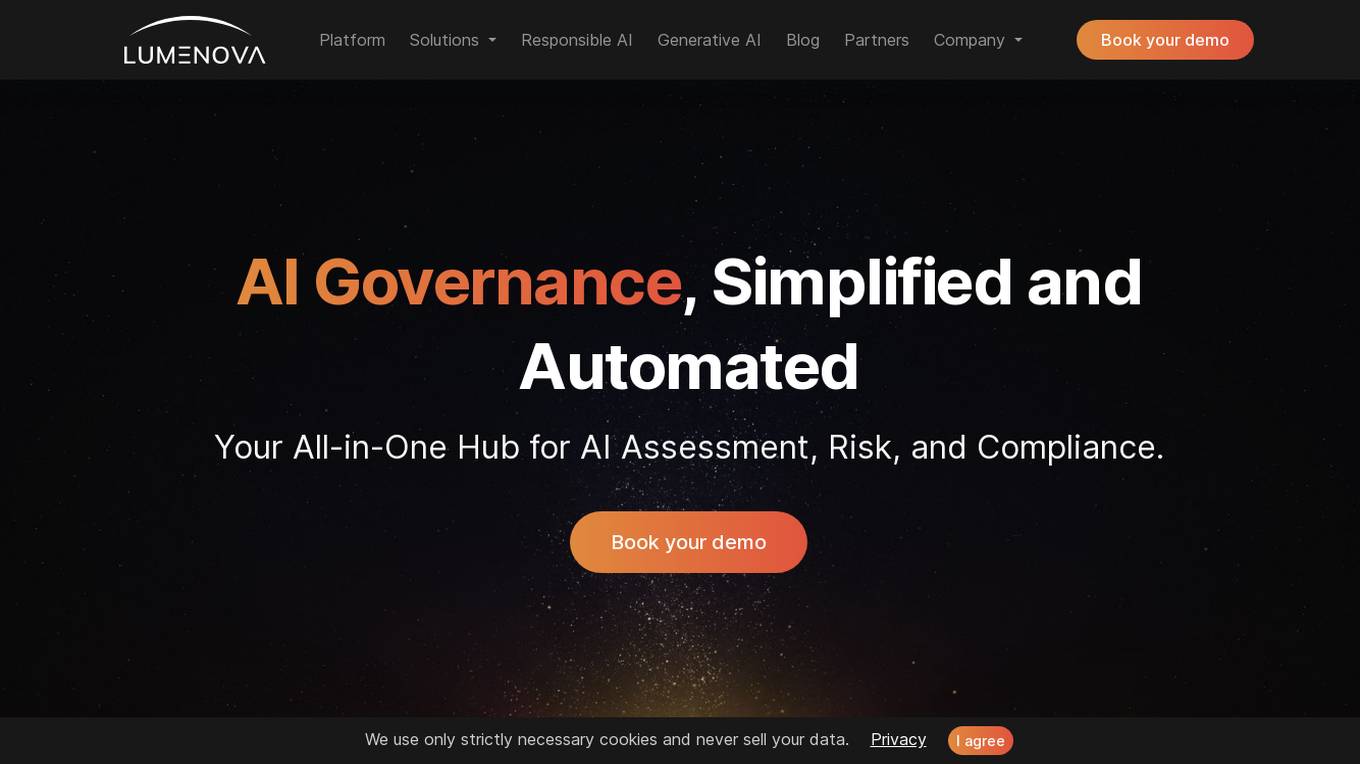
Lumenova AI
Lumenova AI is an AI platform that focuses on making AI ethical, transparent, and compliant. It provides solutions for AI governance, assessment, risk management, and compliance. The platform offers comprehensive evaluation and assessment of AI models, proactive risk management solutions, and simplified compliance management. Lumenova AI aims to help enterprises navigate the future confidently by ensuring responsible AI practices and compliance with regulations.
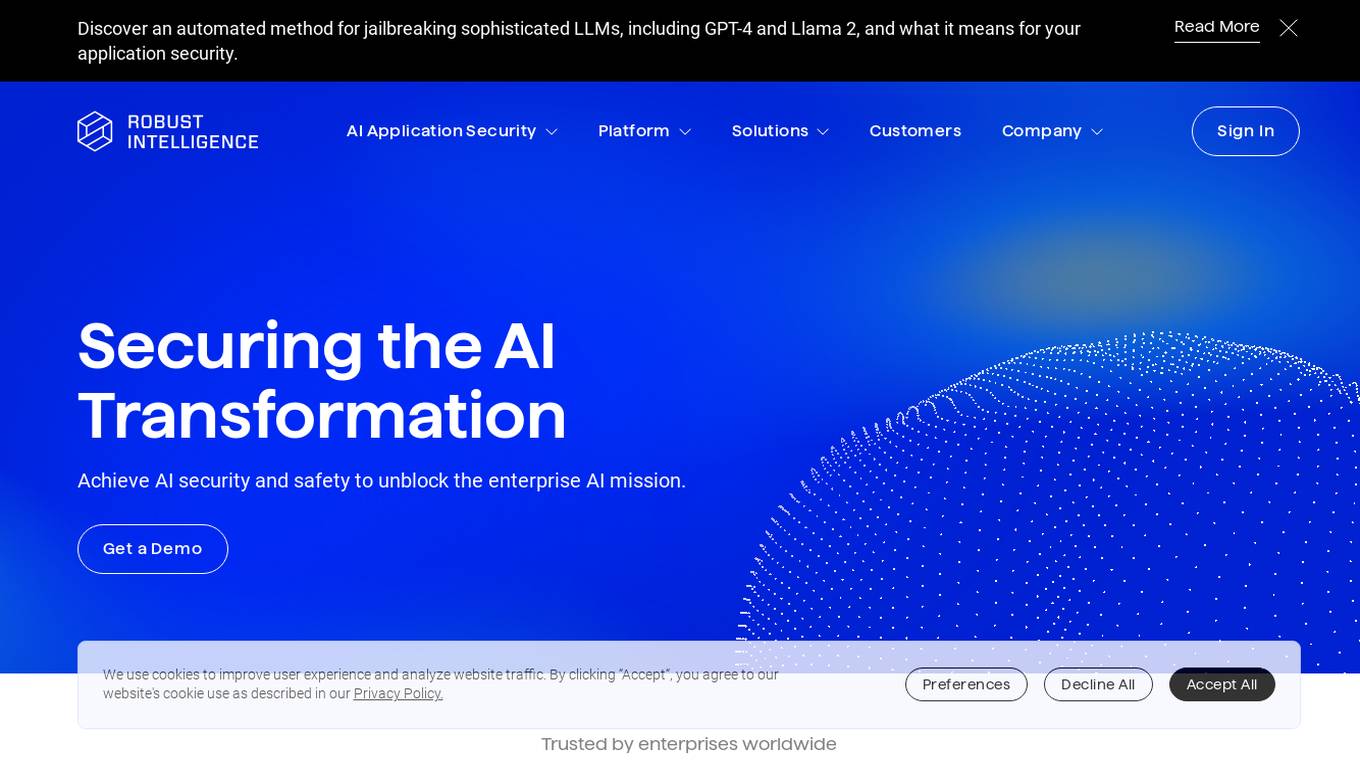
Robust Intelligence
Robust Intelligence is an end-to-end solution for securing AI applications. It automates the evaluation of AI models, data, and files for security and safety vulnerabilities and provides guardrails for AI applications in production against integrity, privacy, abuse, and availability violations. Robust Intelligence helps enterprises remove AI security blockers, save time and resources, meet AI safety and security standards, align AI security across stakeholders, and protect against evolving threats.
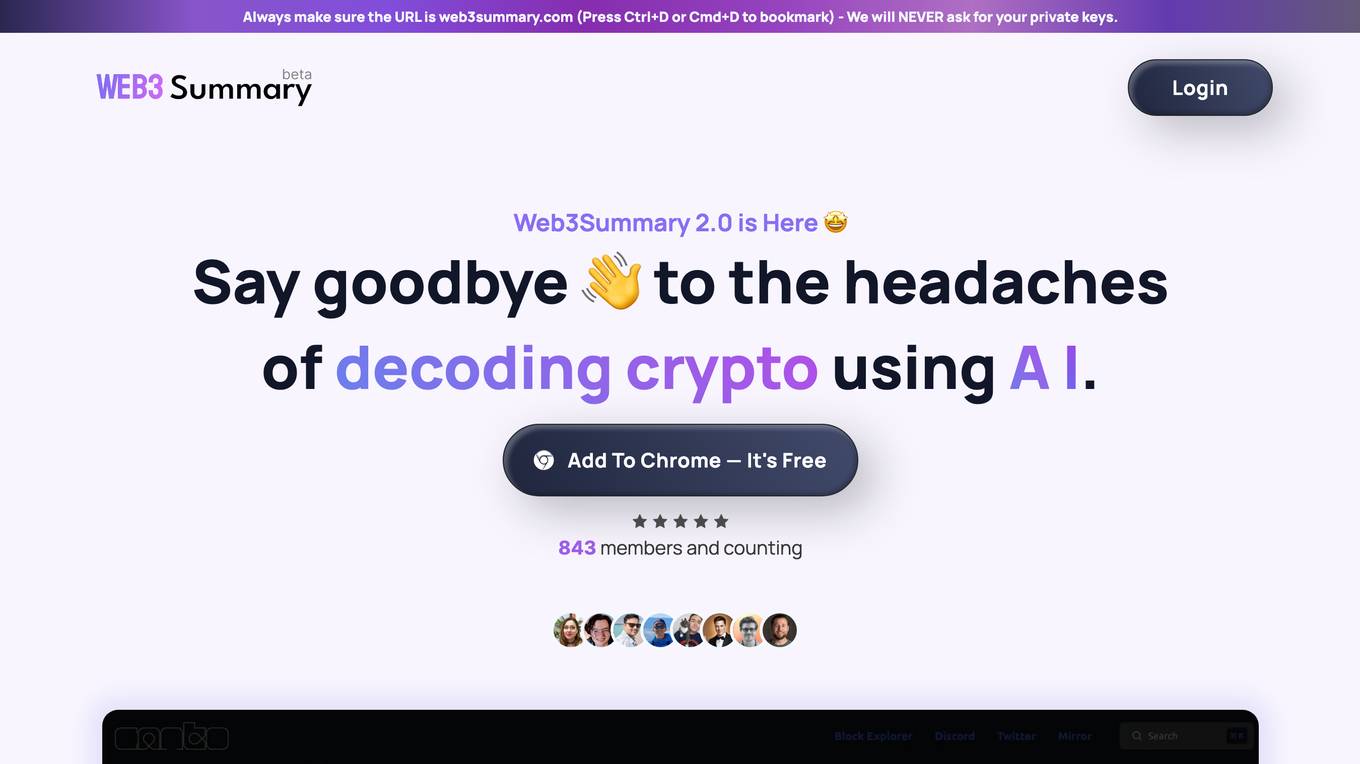
Web3 Summary
Web3 Summary is an AI-powered platform that simplifies on-chain research across multiple chains and protocols, helping users find trading alpha in the DeFi and NFT space. It offers a range of products including a trading terminal, wallet study tool, Discord bot, mobile app, and Chrome extension. The platform aims to streamline the process of understanding complex crypto projects and tokenomics using AI and ChatGPT technology.
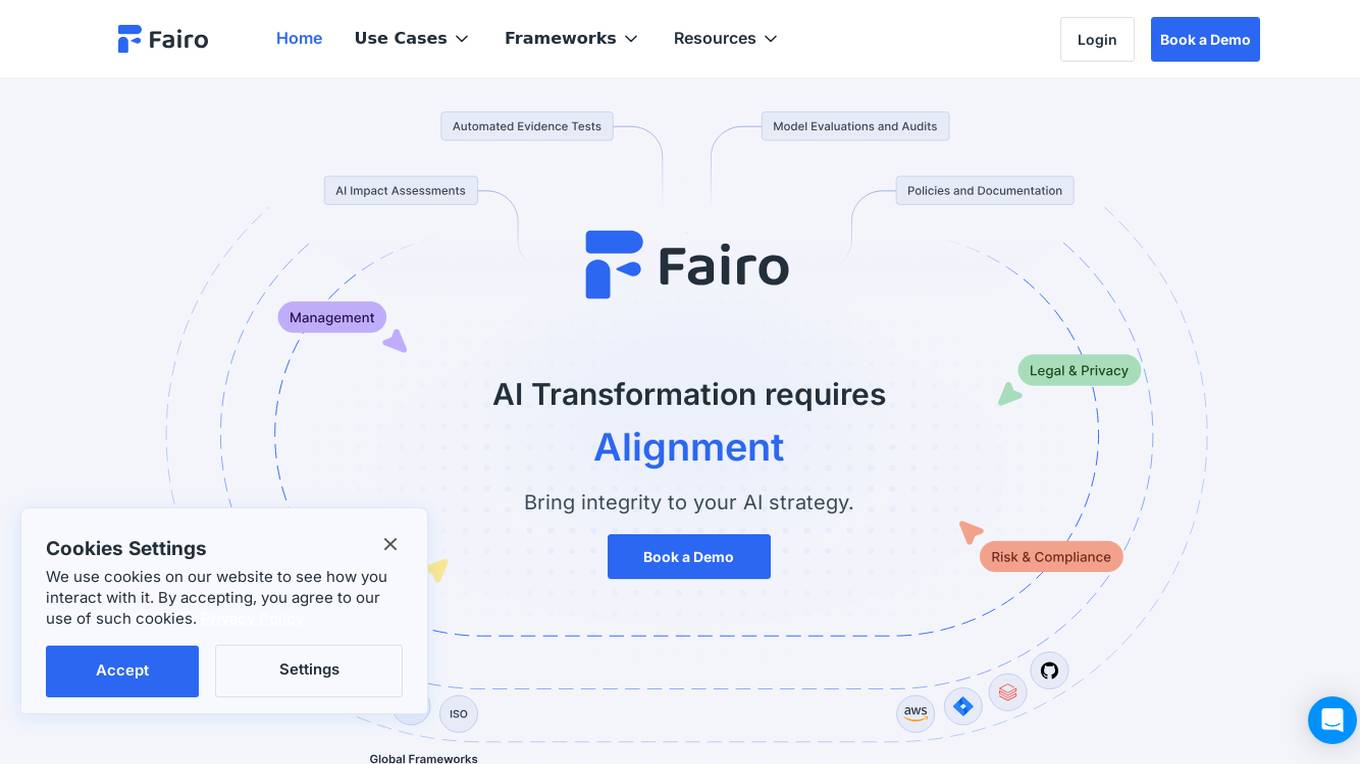
Fairo
Fairo is a platform that facilitates Responsible AI Governance, offering tools for reducing AI hallucinations, managing AI agents and assets, evaluating AI systems, and ensuring compliance with various regulations. It provides a comprehensive solution for organizations to align their AI systems ethically and strategically, automate governance processes, and mitigate risks. Fairo aims to make responsible AI transformation accessible to organizations of all sizes, enabling them to build technology that is profitable, ethical, and transformative.
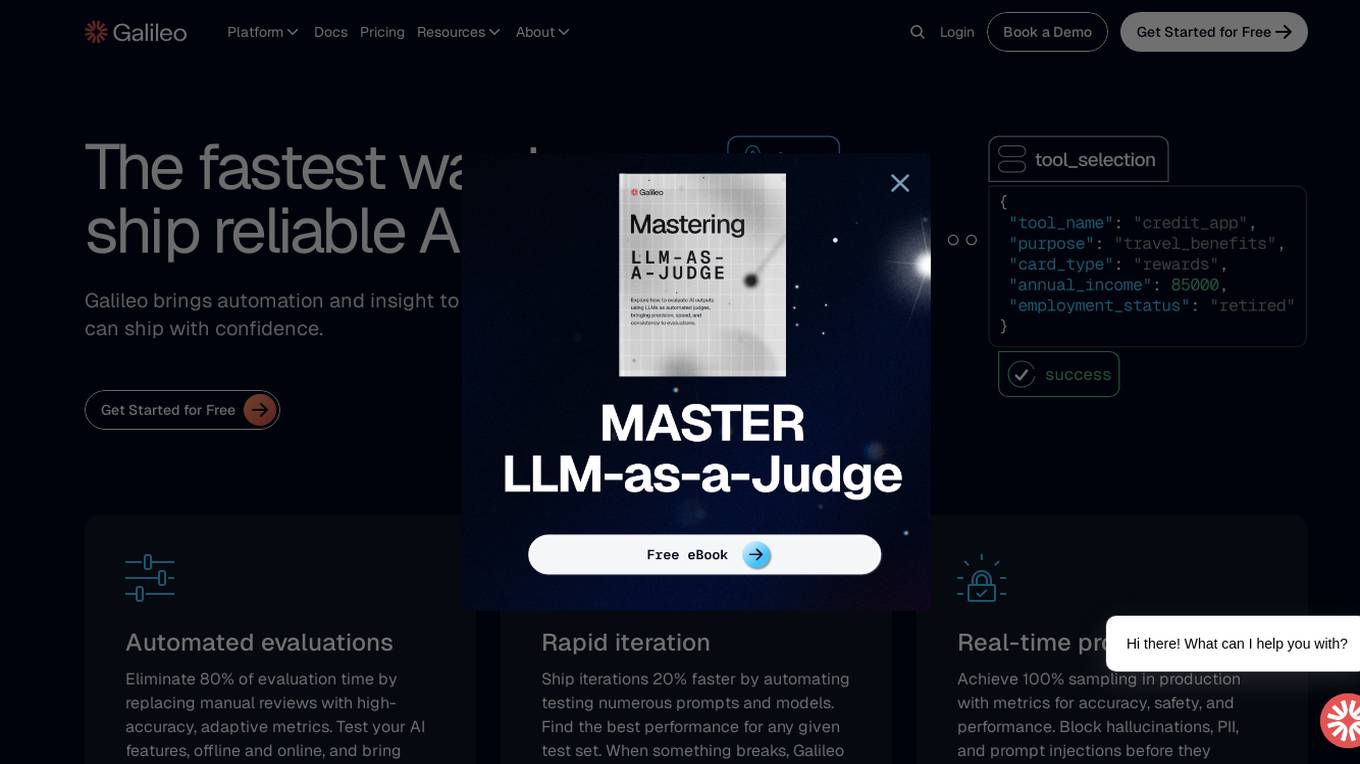
Galileo AI
Galileo AI is a platform that offers automated evaluations for AI applications, bringing automation and insight to AI evaluations to ensure reliable and confident shipping. It helps in eliminating 80% of evaluation time by replacing manual reviews with high-accuracy metrics, enabling rapid iteration, achieving real-time protection, and providing end-to-end visibility into agent completions. Galileo also allows developers to take control of AI complexity, de-risk AI in production, and deploy AI applications flexibly across different environments. The platform is trusted by enterprises and loved by developers for its accuracy, low-latency, and ability to run on L4 GPUs.

Checkmyidea-IA
Checkmyidea-IA is an AI-powered tool that helps entrepreneurs and businesses evaluate their business ideas before launching them. It uses a variety of factors, such as customer interest, uniqueness, initial product development, and launch strategy, to provide users with a comprehensive review of their idea's potential for success. Checkmyidea-IA can help users save time, increase their chances of success, reduce risk, and improve their decision-making.
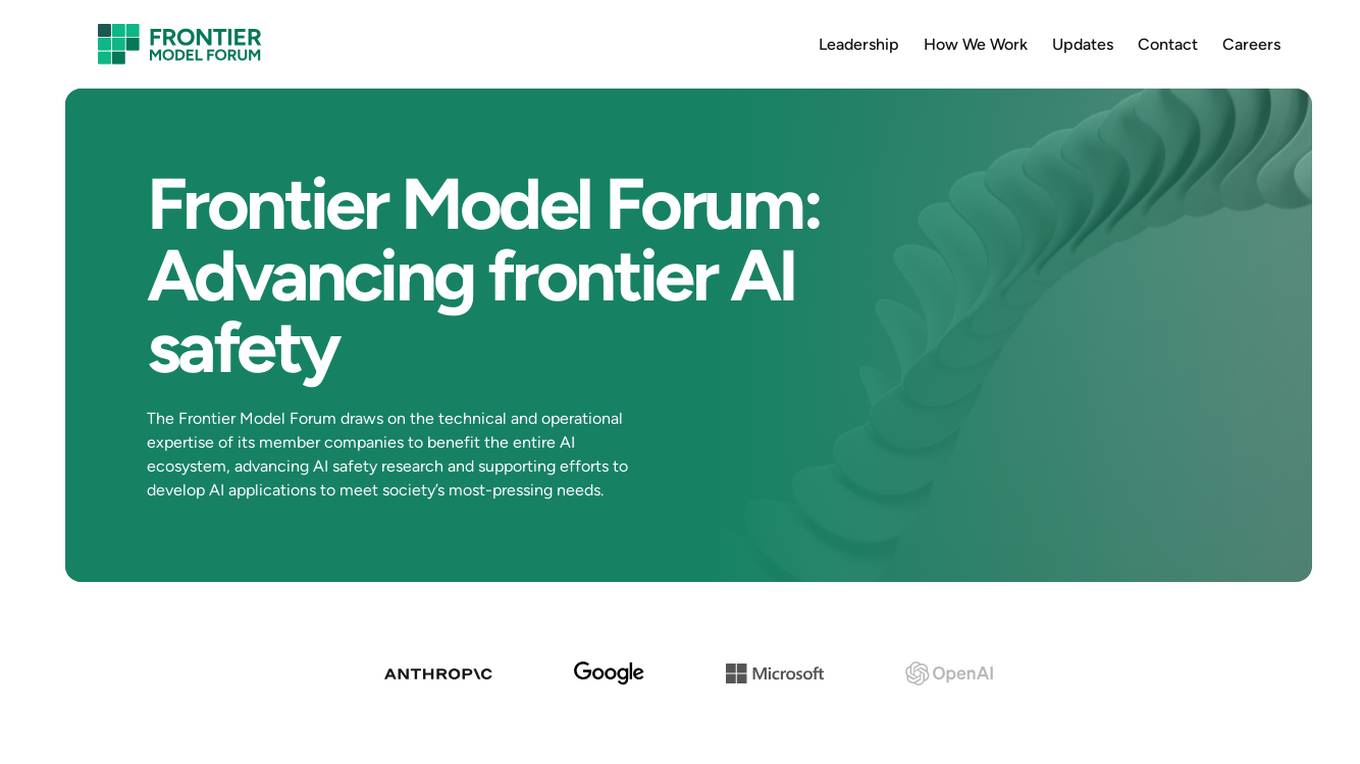
Frontier Model Forum
The Frontier Model Forum (FMF) is a collaborative effort among leading AI companies to advance AI safety and responsibility. The FMF brings together technical and operational expertise to identify best practices, conduct research, and support the development of AI applications that meet society's most pressing needs. The FMF's core objectives include advancing AI safety research, identifying best practices, collaborating across sectors, and helping AI meet society's greatest challenges.
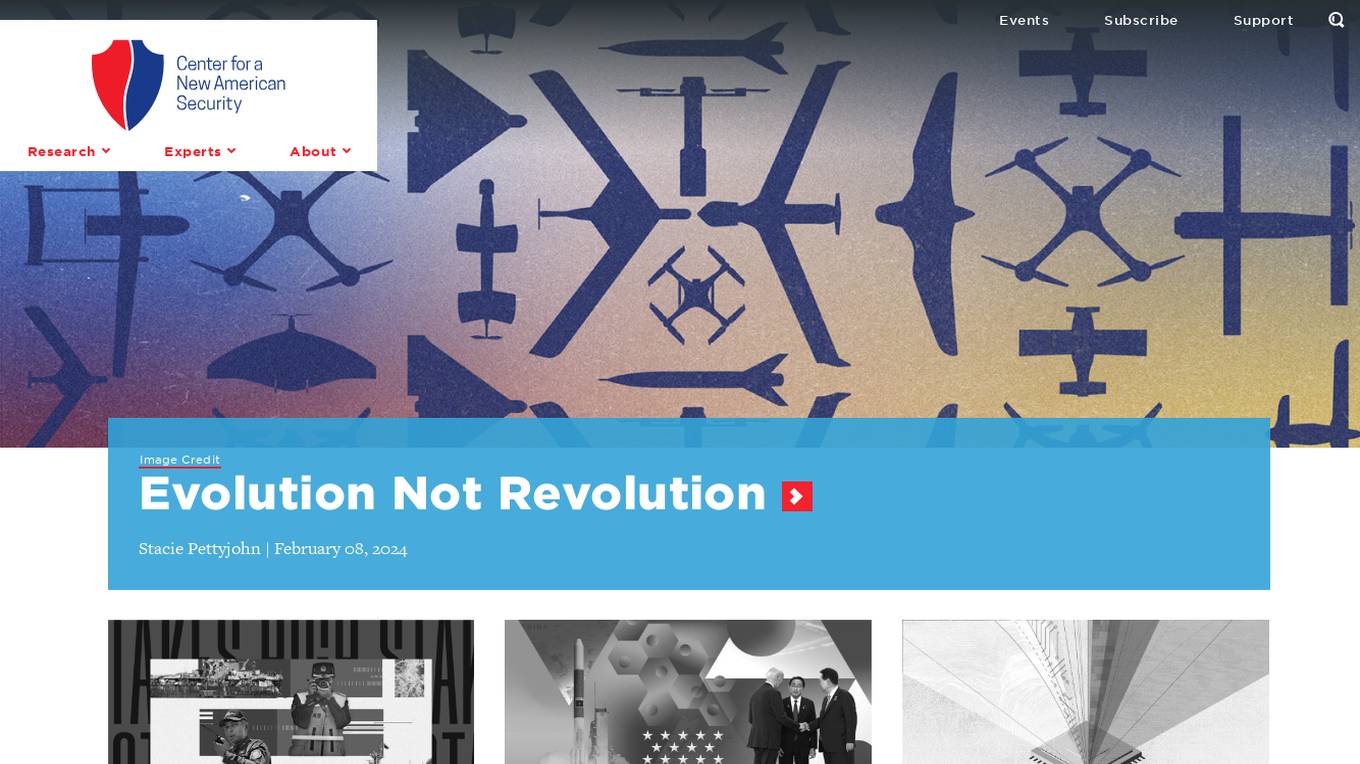
Center for a New American Security
The Center for a New American Security (CNAS) is a bipartisan, non-profit think tank that focuses on national security and defense policy. CNAS conducts research, analysis, and policy development on a wide range of topics, including defense strategy, nuclear weapons, cybersecurity, and energy security. CNAS also provides expert commentary and analysis on current events and policy debates.
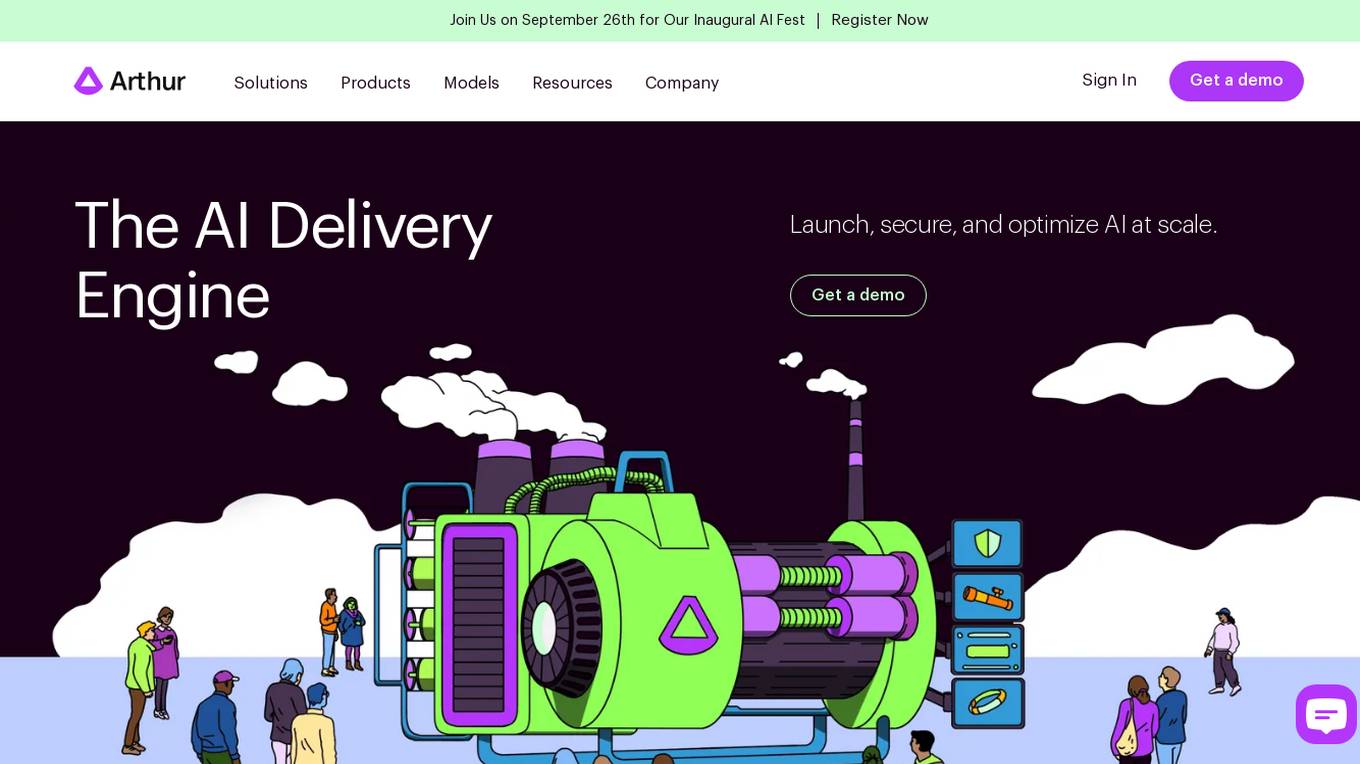
Arthur
Arthur is an industry-leading MLOps platform that simplifies deployment, monitoring, and management of traditional and generative AI models. It ensures scalability, security, compliance, and efficient enterprise use. Arthur's turnkey solutions enable companies to integrate the latest generative AI technologies into their operations, making informed, data-driven decisions. The platform offers open-source evaluation products, model-agnostic monitoring, deployment with leading data science tools, and model risk management capabilities. It emphasizes collaboration, security, and compliance with industry standards.
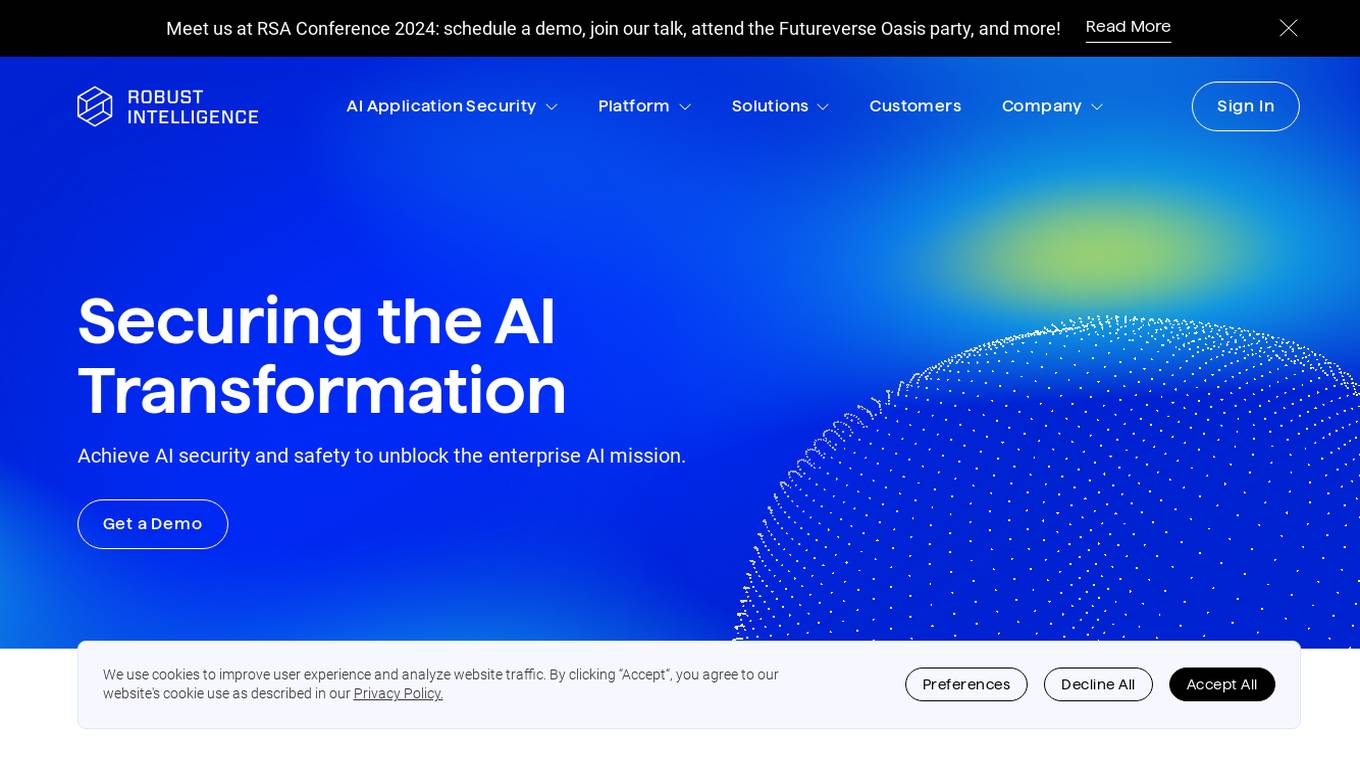
Robust Intelligence
Robust Intelligence is an end-to-end security solution for AI applications. It automates the evaluation of AI models, data, and files for security and safety vulnerabilities and provides guardrails for AI applications in production against integrity, privacy, abuse, and availability violations. Robust Intelligence helps enterprises remove AI security blockers, save time and resources, meet AI safety and security standards, align AI security across stakeholders, and protect against evolving threats.

AnalyStock.ai
AnalyStock.ai is a financial application leveraging AI to provide users with a next-generation investment toolbox. It helps users better understand businesses, risks, and make informed investment decisions. The platform offers direct access to the stock market, powerful data-driven tools to build top-ranking portfolios, and insights into company valuations and growth prospects. AnalyStock.ai aims to optimize the investment process, offering a reliable strategy with factors like A-Score, factor investing scores for value, growth, quality, volatility, momentum, and yield. Users can discover hidden gems, fine-tune filters, access company scorecards, perform activity analysis, understand industry dynamics, evaluate capital structure, profitability, and peers' valuation. The application also provides adjustable DCF valuation, portfolio management tools, net asset value computation, monthly commentary, and an AI assistant for personalized insights and assistance.
0 - Open Source AI Tools
20 - OpenAI Gpts

STO Advisor Pro
Advisor on Security Token Offerings, providing insights without financial advice. Powered by Magic Circle

FinWiz
FinWiz-GPT is designed for finance professionals. It assists in market analysis, financial modeling, and understanding complex financial instruments. It's a great tool for financial analysts, investment bankers, and accountants.

FinVIX | Finance Pro for College Courses
Expert in undergraduate financial math, using multiple in-depth trainings.

Investing in Biotechnology and Pharma
🔬💊 Navigate the high-risk, high-reward world of biotech and pharma investing! Discover breakthrough therapies 🧬📈, understand drug development 🧪📊, and evaluate investment opportunities 🚀💰. Invest wisely in innovation! 💡🌐 Not a financial advisor. 🚫💼
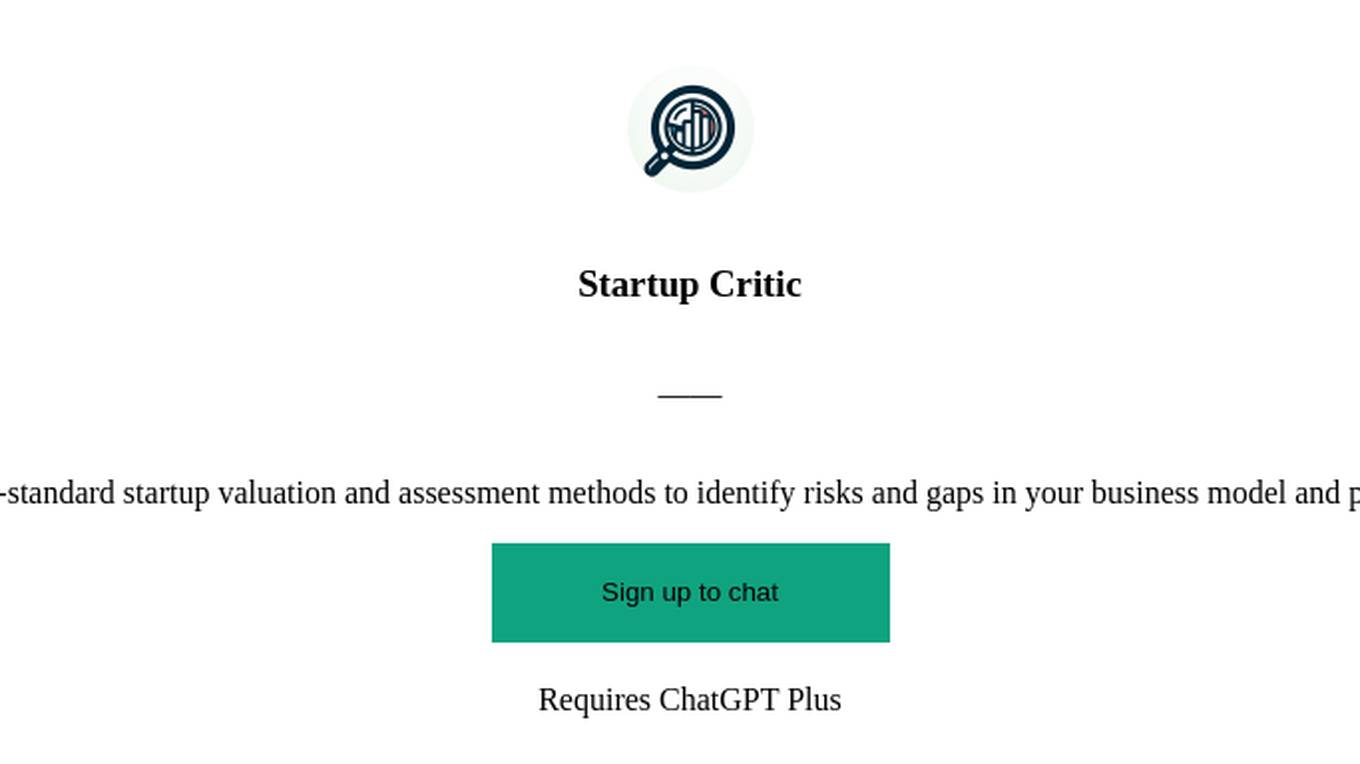
Startup Critic
Apply gold-standard startup valuation and assessment methods to identify risks and gaps in your business model and product ideas.
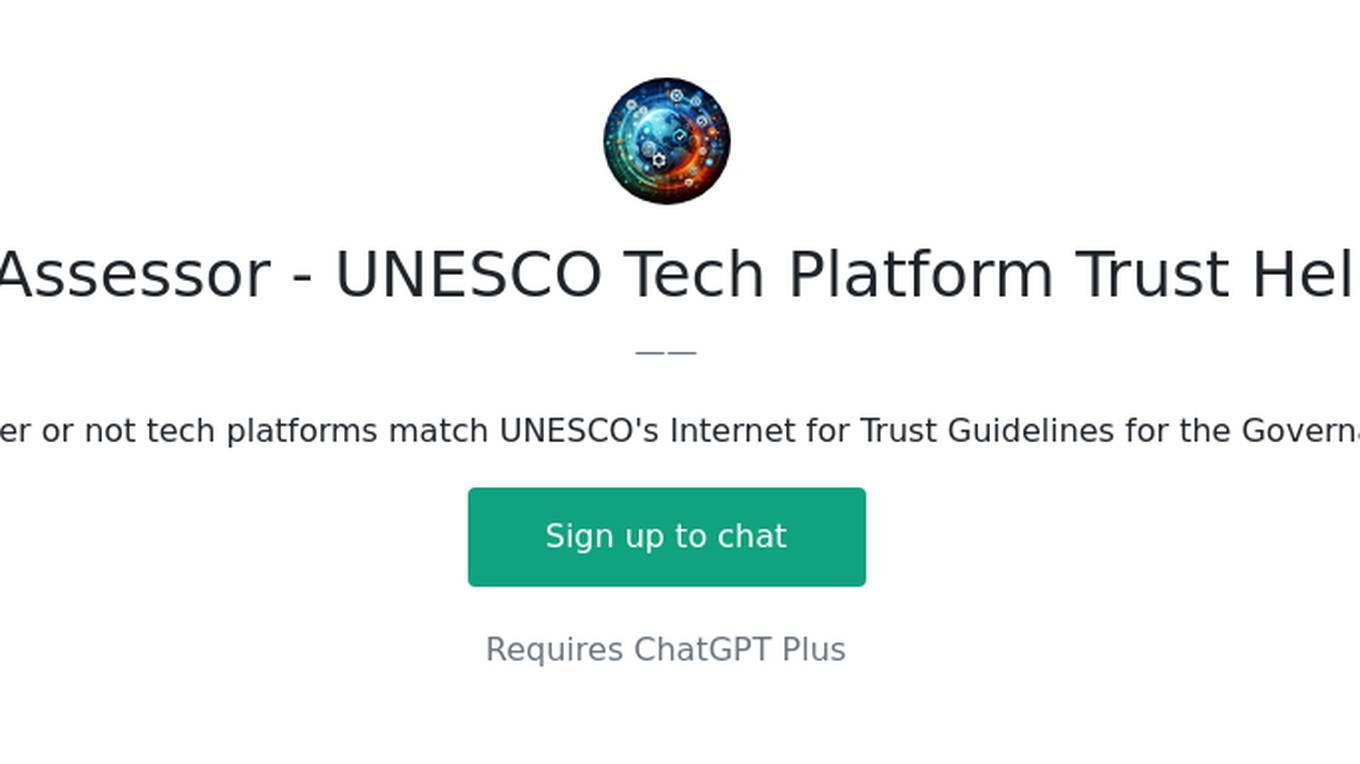
I4T Assessor - UNESCO Tech Platform Trust Helper
Helps you evaluate whether or not tech platforms match UNESCO's Internet for Trust Guidelines for the Governance of Digital Platforms
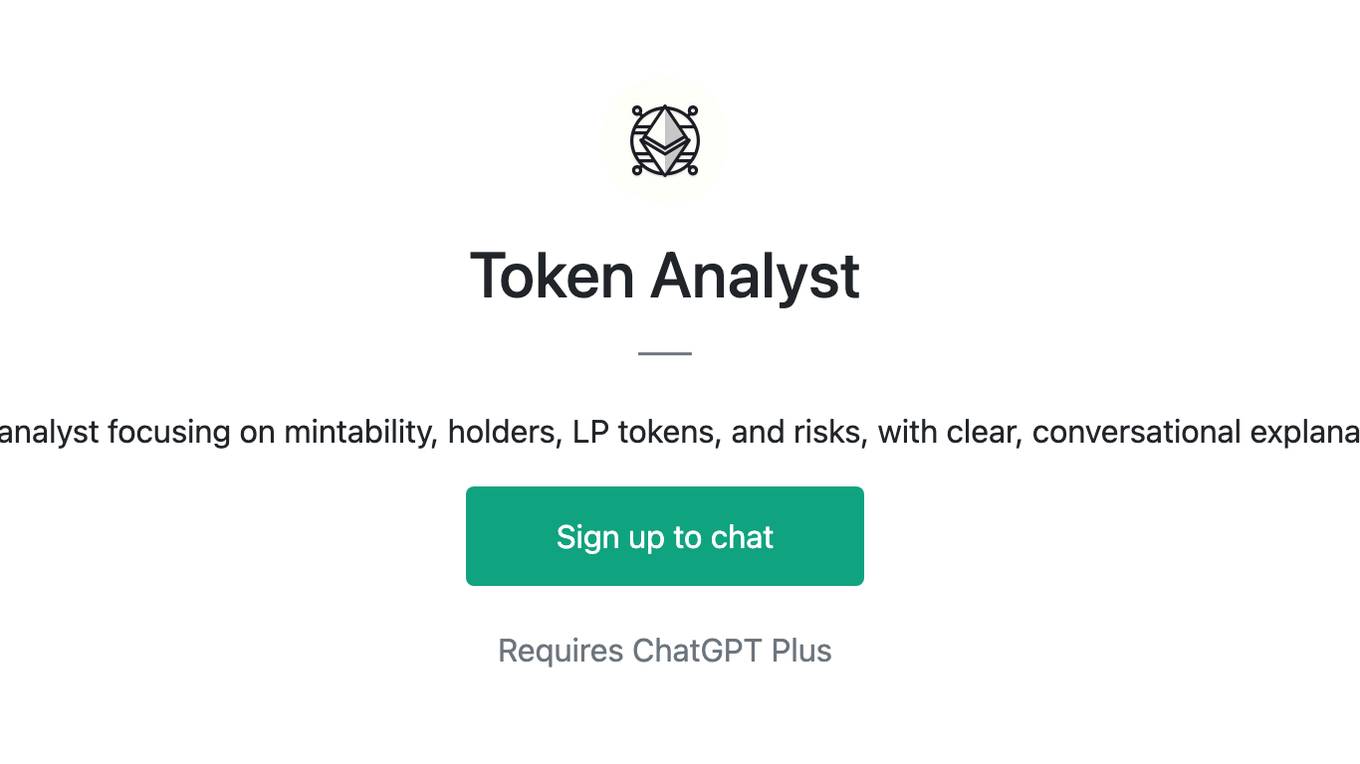
Token Analyst
ERC20 analyst focusing on mintability, holders, LP tokens, and risks, with clear, conversational explanations.
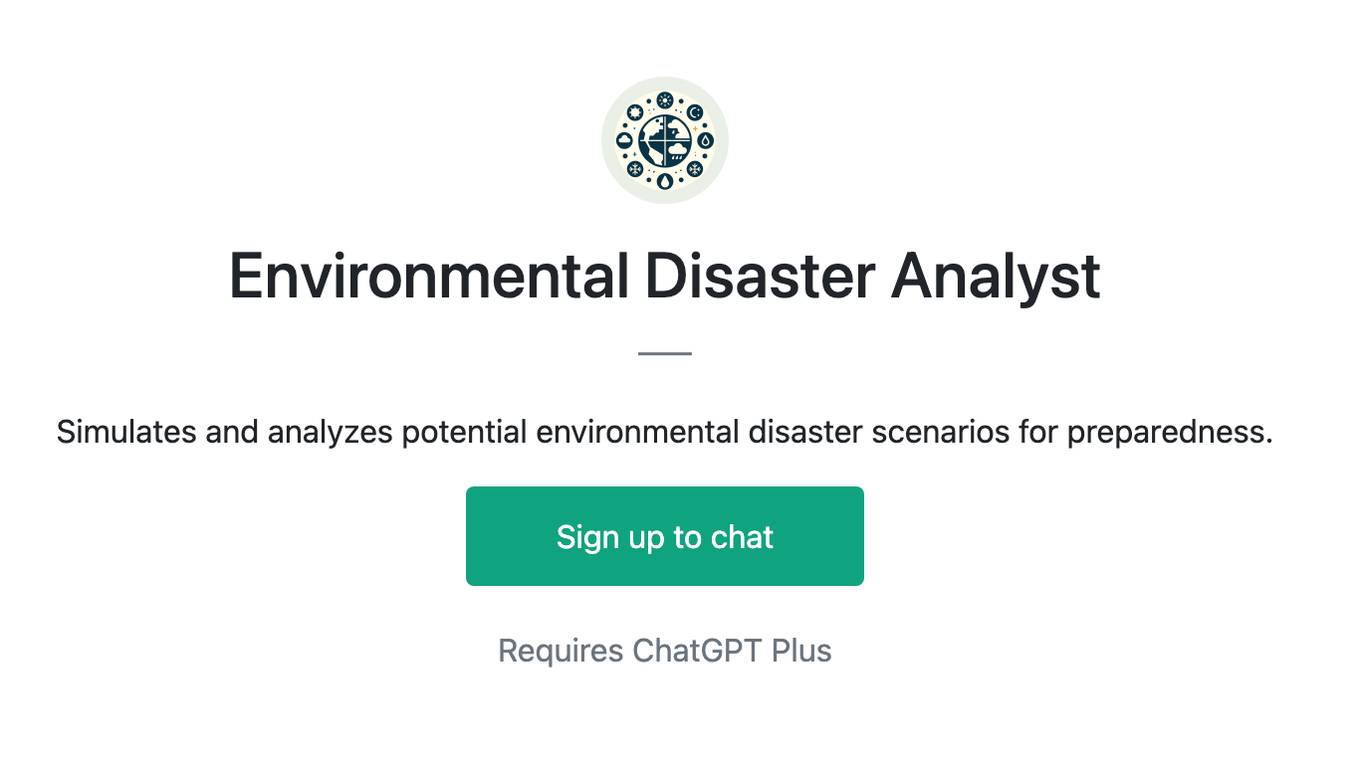
Environmental Disaster Analyst
Simulates and analyzes potential environmental disaster scenarios for preparedness.
Lifeeventprobabilityanalyzer
Map or simulate a scenario real time analyze probability of a life event coming true based on circumstances
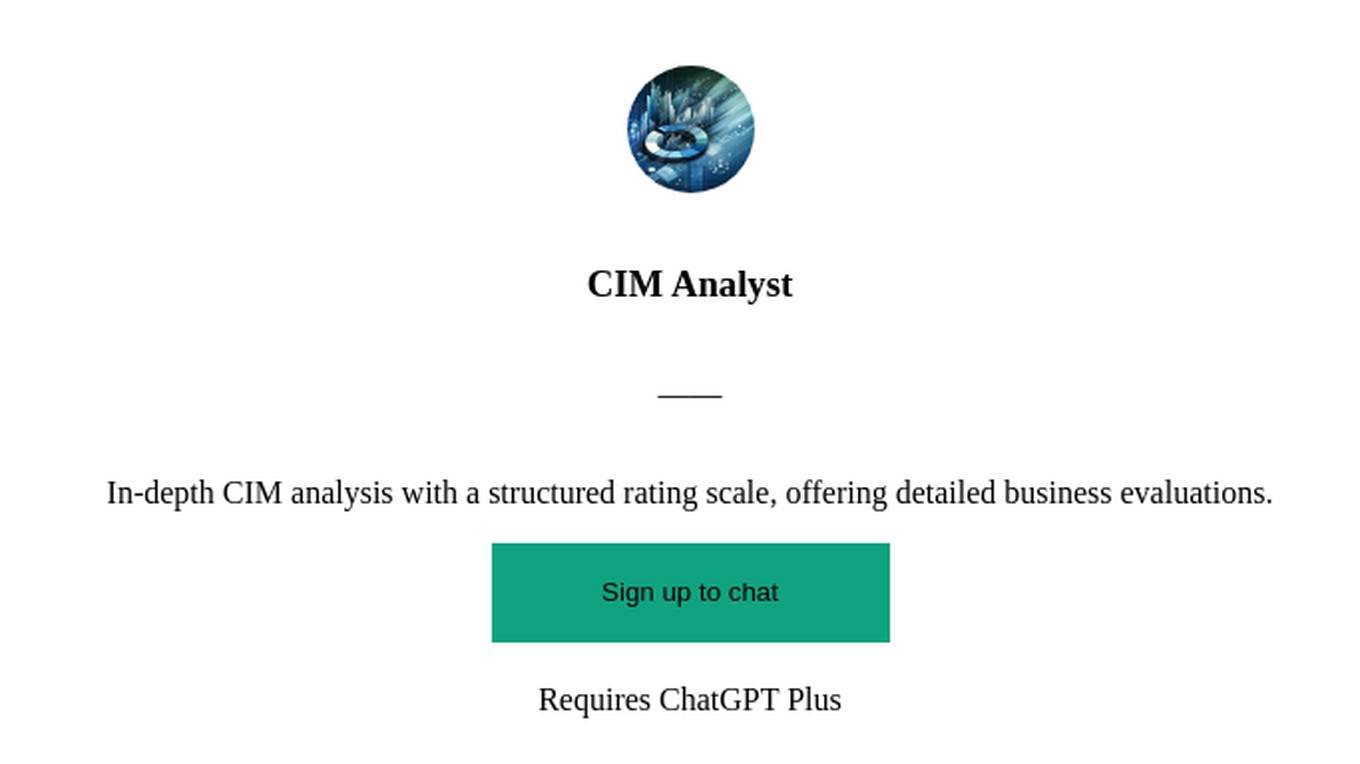
CIM Analyst
In-depth CIM analysis with a structured rating scale, offering detailed business evaluations.
